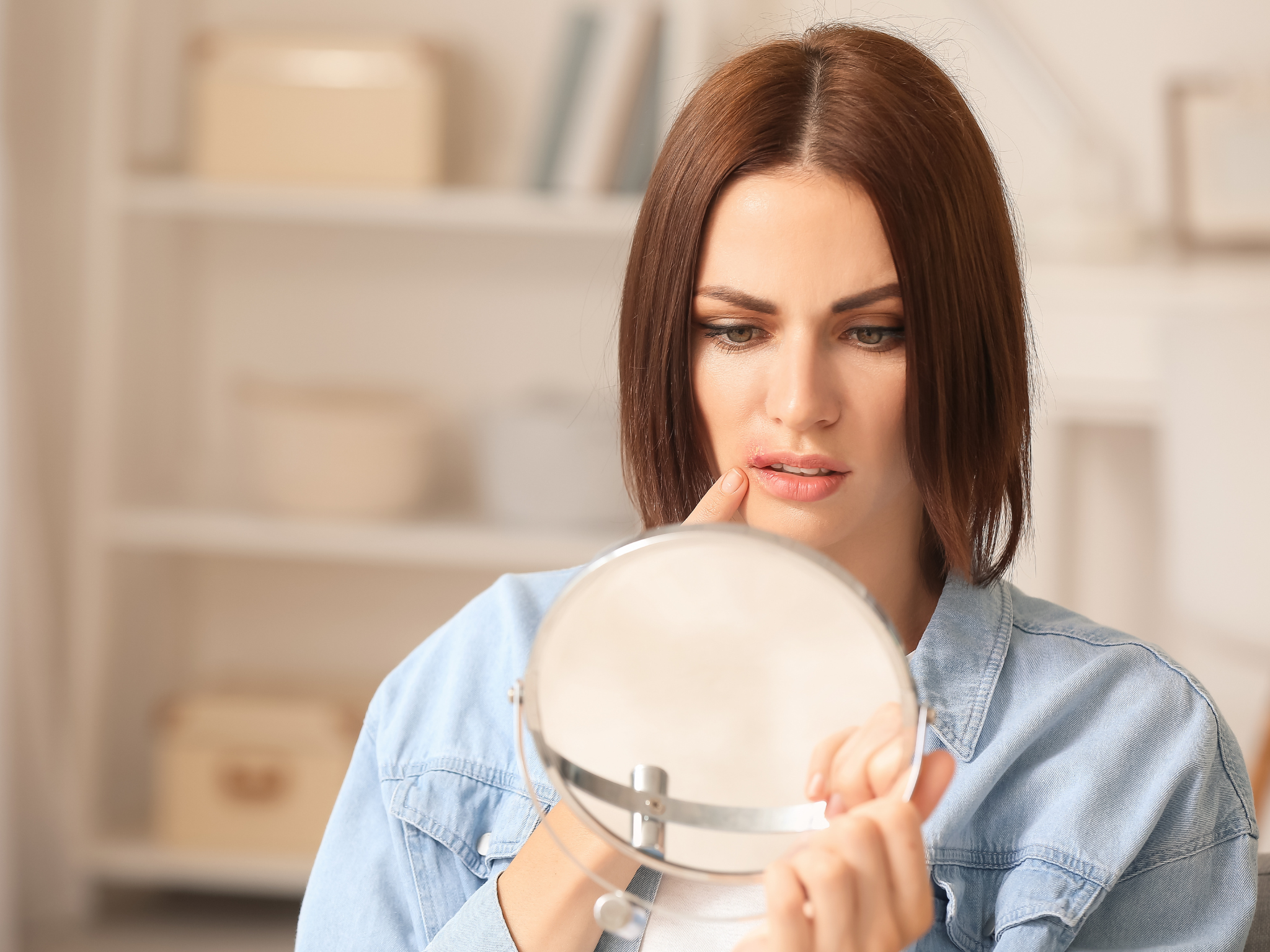Q: What exactly are cold sores?
Dr. Kiskila: Cold sores, also known as fever blisters, are small, painful blisters that usually appear on or around the lips. They can appear though on other parts of the body including fingers, your eye, or in and around your nose. They’re caused by the herpes simplex virus (most commonly HSV-1), and they’re highly contagious—especially when the sores are visible.
Q: What triggers a cold sore outbreak?
Dr. Kiskila: There are several common triggers including stress, illness, sun exposure, hormonal changes, and even fatigue. Once you’ve been infected with the virus, it stays dormant in your body and can be reactivated by these factors.
Q: How can you treat cold sores?
Dr. Kiskila: Cold sores usually go away on their own within 7 to 10 days, but antiviral medications—like acyclovir or valacyclovir—can help speed up healing and reduce symptoms if taken early. Over-the-counter creams and pain relievers can also provide symptom relief.
Q: Are cold sores contagious?
Dr. Kiskila: Yes, very. They can be spread through close personal contact like kissing, or by sharing utensils, razors, or towels. It’s especially important to avoid contact when the sores are active.
Q: What about diet—can certain foods or supplements help or hurt?
Dr. Kiskila: Great question. There’s some evidence that the amino acids arginine and lysine can play a role in cold sore outbreaks. The herpes virus needs arginine to replicate, so high-arginine foods—like chocolate, nuts, and seeds—may contribute to flare-ups in some people. On the other hand, lysine may help inhibit the virus. Some people find that taking lysine supplements (or eating lysine-rich foods like dairy, fish, and chicken) helps reduce the frequency or severity of outbreaks. While the research is mixed, it’s generally considered safe and may be worth trying—just check with your doctor first.
Q: Can you prevent cold sores from coming back?
Dr. Kiskila: You can’t always prevent them, but you can reduce outbreaks by identifying and avoiding your triggers. Regular use of sunscreen on your lips, managing stress, and staying healthy are simple preventive steps. For people with frequent outbreaks, daily antiviral medications, prescribed medications, or lysine supplementation may be recommended.
Q: When should someone see a doctor?
Dr. Kiskila: If your cold sores are unusually painful, frequent, don’t heal within two weeks, or if you have a weakened immune system, it’s a good idea to check in with your doctor. We can help determine the best course of treatment.

Favorite Platform

New Content




